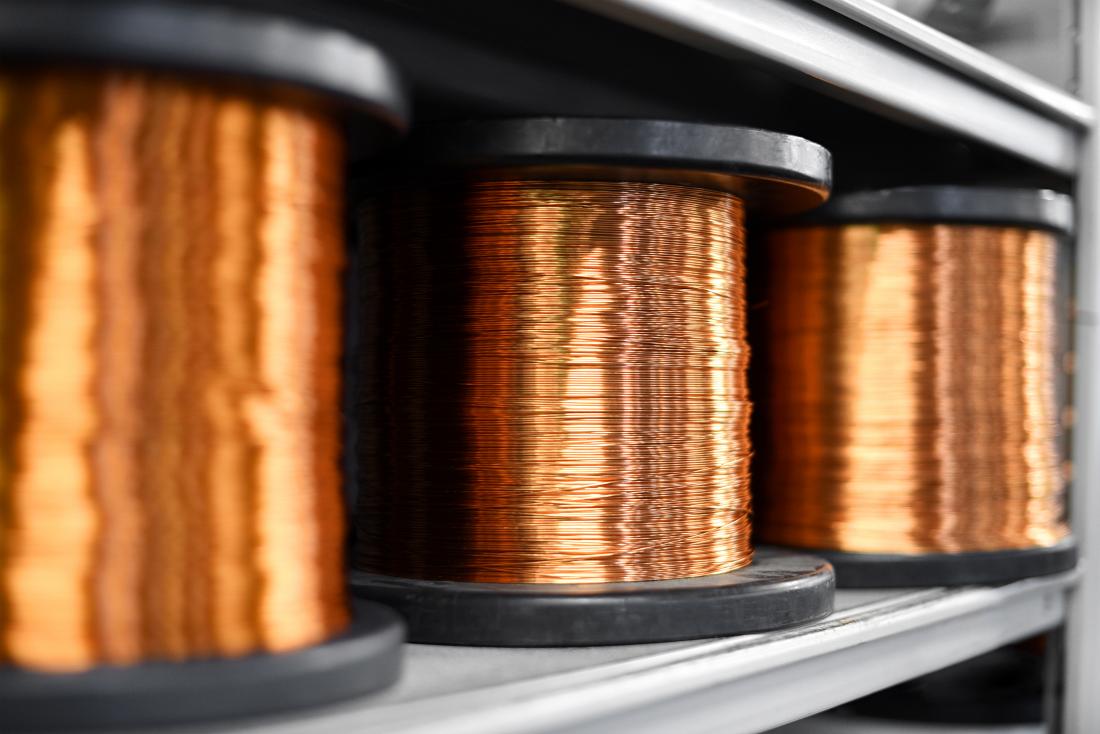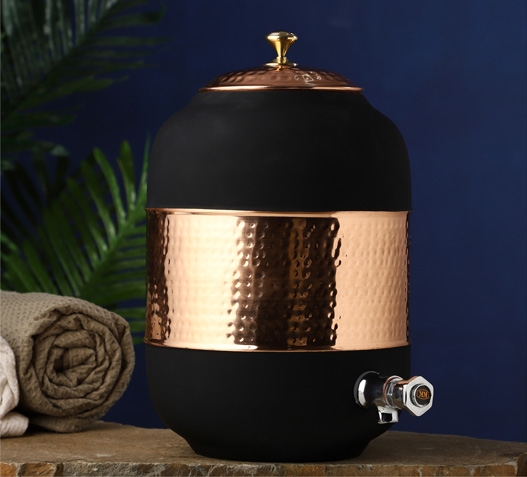Enhancing Your Kitchen with Premium Copper Products: Tips and Best Practices
Enhancing Your Kitchen with Premium Copper Products: Tips and Best Practices
Blog Article
Exactly How Copper Products Add To Sustainable Practices in Various Markets
In renewable power systems, for instance, copper boosts the functionality of solar and wind modern technologies, while its application in building and construction lessens waste via long life. As industries look for to embrace more lasting practices, the function of copper might verify pivotal in attaining ecological goals.
Copper in Renewable Resource
Copper plays an essential duty in the improvement of eco-friendly energy modern technologies, functioning as an important conductor in numerous applications. Its phenomenal electric conductivity and resistance to deterioration make it a perfect material for electric wiring, which is important in solar panels, wind turbines, and power storage space systems. In solar photovoltaic systems, copper is used in the affiliations and circuitry, making it possible for efficient energy conversion from sunlight to power.
In wind energy, copper is essential to the generators and transformers that transform kinetic power into electric energy, ensuring optimal efficiency and dependability. The demand for electrical automobiles (EVs) is increasing, with copper being a vital element in batteries, motors, and billing infrastructure. The transition to EVs considerably boosts the need for copper, as these vehicles typically utilize four times extra copper than traditional inner burning engine lorries.
As the world seeks to reduce environment change and transition to lasting energy sources, copper's role becomes progressively crucial. The product not just boosts the performance and durability of renewable resource systems but additionally supports the more comprehensive goal of minimizing greenhouse gas discharges and advertising a lasting future.
Eco-Friendly Construction Products
In recent years, there has actually been a notable change towards the fostering of environmentally friendly construction products in response to expanding ecological concerns. This adjustment is inspired by the demand for sustainable choices that lessen ecological footprints while maintaining architectural honesty and aesthetic charm.
Copper, recognized for its resilience and recyclability, has actually become a principal in this field. It can be made use of in roof covering, plumbing, and electrical systems, adding to power effectiveness and reducing waste. Copper's durability suggests less replacements over time, further enhancing its sustainability account.
Additionally, materials such as bamboo, reclaimed timber, and reused steel are obtaining popularity. These options not only offer reduced environmental impact however likewise promote source conservation. As constructing codes significantly emphasize sustainability, engineers and contractors are integrating these materials into their jobs, fostering development in style.
The increasing adoption of environment-friendly building products reflects a wider commitment to sustainability in the built setting. By focusing on these products, the building and construction industry can significantly lower its carbon footprint, straighten with governing criteria, and support a much healthier ecosystem for future generations. This pattern notes a pivotal action towards a more lasting future in construction.
Copper's Duty in Medical care
Current research studies have highlighted the significant function of copper in medical care setups, particularly due to its antimicrobial homes. Copper surface areas have actually been shown to lower the existence of pathogens, consisting of infections and bacteria, by as much as 99.9% within a brief duration. This exceptional efficacy makes copper a very useful product for high-touch surface areas in hospitals, such as doorknobs, bed rails, and IV posts, thus adding to improved infection control actions.
Along with its straight antimicrobial results, copper also plays a role in the wider context of hospital sustainability (Copper Products). By integrating copper right into medical devices and furnishings, medical care centers can lower the occurrence of healthcare-associated infections (HAIs), which not only boosts person end results however additionally reduces the expenses associated with extended hospital keeps and additional treatments
Additionally, copper's toughness and recyclability line up with lasting techniques, enabling liable source administration. As medical care systems significantly prioritize both person my company safety and security and environmental stewardship, the integration of copper items is coming to be a lot more common. This dual advantage highlights copper's crucial payment to a much healthier, much safer, and much more sustainable medical care setting.
Sustainability in Transportation

Additionally, copper's durability and deterioration resistance add to the longevity of transport framework (Copper Products). In rail systems, for example, copper parts boost the integrity and performance of signaling and power systems, crucial for reducing hold-ups and energy consumption. Additionally, copper's duty in renewable energy systems, such as solar and wind, sustains lasting transportation solutions by providing clean you could try here power for electric transit options
Investments in copper innovation not only foster sustainability however additionally boost financial growth and job development in environment-friendly markets. As industries strive to meet rigid ecological policies, the application of copper items in transportation emerges as a crucial approach in achieving sustainability objectives and promoting a cleaner, much more reliable future.
Copper and Round Economic Climate
As the world increasingly embraces sustainability, the function of copper in the circular economy becomes ever much more significant. Copper's innate properties-- such as its conductivity, resilience, and recyclability-- setting it as a crucial material in a resource-efficient economy. The circular economy aims to minimize waste and take full advantage of resource usage via recycling and reusing products, and copper excels in this regard.
The steel can be reused indefinitely without loss of top quality, making it an excellent prospect for lasting methods across different sectors, consisting of building and construction, electronics, and renewable power. By reprocessing and recuperating copper from end-of-life products, industries can significantly decrease the demand for virgin products, thus decreasing ecological influences related to mining and handling.
Furthermore, the assimilation his response of copper into circular economic climate structures not only saves sources but also promotes innovation. Services that focus on copper recycling contribute to an extra sustainable supply chain, boosting their competition while straightening with governing demands and consumer choices for ecologically responsible items.
Conclusion
To conclude, copper products dramatically contribute to sustainable practices across multiple industries. Their crucial duty in improving renewable resource innovations, promoting environment-friendly construction materials, sustaining infection control in medical care, helping with lasting transport, and personifying the principles of a circular economic situation emphasizes the adaptability and significance of copper. By incorporating copper into various applications, industries can achieve better effectiveness, decrease environmental impact, and straighten with international sustainability goals, inevitably cultivating a more sustainable future.

Copper's outstanding conductivity makes it a favored material in electrical automobile (EV) systems, enhancing energy performance and performance. Additionally, copper's duty in sustainable energy systems, such as solar and wind, sustains lasting transport options by supplying tidy power for electrical transportation alternatives.
Their important role in boosting renewable energy technologies, promoting environment-friendly construction products, supporting infection control in health care, assisting in sustainable transportation, and personifying the principles of a round economic climate emphasizes the flexibility and value of copper.
Report this page